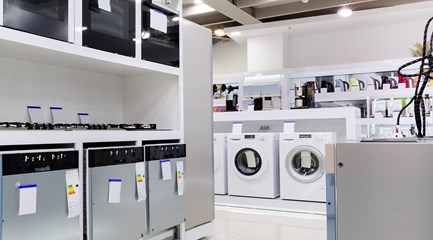
We’ve all suffered the disappointment of purchasing an item online, only to find something completely different inside the package when it finally arrives.
But what if your dud purchase ended up being deadly?
We put a lot of trust into online marketplaces, with 93% of consumers expecting e-commerce sites to protect them from counterfeit goods. Last year card spending on the internet totalled at £154bn, so it’s safe to say we love a bit of retail therapy from the comfort of our sofas.
But should we be relying on these companies to regulate their sellers? After hearing reports of fake and substandard goods appearing on popular e-commerce websites, we decided to see just how prevalent the counterfeit industry is online.
What we found was shocking.
Almost 1/3 of people in the UK have fallen victim to counterfeit scams - that’s the equivalent of 18 million people!
Our investigation uncovered dangerous electrical goods for sale across a selection of e-commerce sites. The type of products causing concern included tumble dryers, Kodi boxes, kettles, travel adaptors, and hair straighteners.
Our technical experts identified a variety of frightening safety flaws with the products, including a serious lack of protection from electric shock and the potential to cause a fire. Alarmingly, a number of goods advertised also matched items listed on our product recall list.
It’s no wonder that 1 in 7 Brits admit that they have experienced loss or serious damage caused by an electrical item purchased from an e-commerce website.

From these figures alone, it’s clear that these platforms have been swamped with unscrupulous sellers willing to risk the safety of unwitting consumers just to make a quick buck.
But surely any potential sellers are thoroughly inspected and verified? What kind of checks do they have to go through before being let loose to hawk their wares over the internet?
We decided to find out.
It only took us a few minutes to set up an account as a seller on one of the UK’s most popular e-commerce sites. We called ourselves ‘Dodgy Electricals Ltd’ - thankfully, the name was available! - and created a fictional business owner with a false name and passport number. Then we sat back and waited to see if we would be verified.
A few hours later, we received the email. Dodgy Electricals Ltd was now listed as a seller - dubious name, fake passport number and all.
We repeated this process with two other popular online marketplaces, and were verified as a seller on each site.
This lack of regulation and checks on some of the world’s biggest e-commerce sites is seriously concerning. It’s even more worrying when you consider the fact that 92% of people in the UK expect these websites to monitor third-party sellers.
This begs the question: why is this happening?
In the age of artificial intelligence and strict online regulations, it’s reasonable to expect these websites to have the skills and technology required to weed out the dodgy sellers. Are there simply too many listings on their websites to keep track of?
We’re calling on these sites to protect their customers, and take steps to regulate the sale of fake and unsafe products.

With e-commerce platforms seemingly unconcerned about the wave of counterfeit goods threatening to take over their websites, it seems that it’s down to consumers to take control and learn how to spot a fake product.
With this in mind, here are a few simple things to look out for:
- Many counterfeit and substandard electrical goods that we came across online were listed at a significantly lower price than their genuine counterparts. Watch out for the price - if it feels like a bargain too good to be true, the chances are it probably is.
- The only guarantee that you’re buying the real thing is to purchase your electrical products from a reputable retailer or directly from the manufacturer.
- Seeing is not believing. Do not trust that the image on display is indicative of the product you will receive - dodgy sellers often use photographs of genuine items in their listings, and then send you the substandard version.
- Don’t trust reviews - many people may not be aware that the electrical product they have purchased in substandard or counterfeit. Many reviews will be based on the product working at one point in time rather than the long term safety risk it poses to the owner. Some third-party sellers even pay people to leave a positive review!
For more in-depth advice on counterfeit items (including what to do if you think you’ve bought one) visit the Safe Shopping page on our website.
More posts by Jenna Haldane



